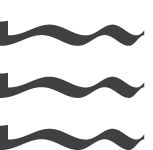About
THE COLLECTIVE
Fred Moten & Stefano Harney, The Undercommons: Fugitive Planning & Black Study (2013)
The Digital Salon is a curation of listening experiences brought to you by alumni of the UCLA Urban Humanities Initiative, a collective of interdisciplinary scholars, activists, and artists seeking to blur the boundaries of our respective disciplinary and epistemological habits.
As urban humanists attuned to the ways urban space reinvents the enclosure, we bring you Season 2, THE COLLECTIVE. If our first season investigated the ways the pandemic is a portal, our second season elevates sonic projects that explore how the urban environment can be used to organize and arrange an array of polyvocal collectives. We ask urban humanists, what is a collective and what are the ways to transmit knowledge through collectivity? What lessons can we learn from alternative forms of knowledge production and practices of organizing and social change-making?
Selected contributors were asked to create 20-30 minute episodes that narrativize collectivity at various scales within an urban humanist framework: the intimate, the familial, the communal, the urban, the global, the metaphysical. Contributors came together in a series of three one-hour workshops to build distinct types of sonic content—observations, interviews, summaries, syntheses, reflections—that comprise the archives for their final episodes.
Editorial Statement
Season 2 of the Digital Salon
We are pleased to bring you our second season of the Digital Salon: THE COLLECTIVE. Complete with twelve podcast episodes, this project is the fourth iteration of annual convenings begun by the alumni and affiliated practitioners of UCLA’s Urban Humanities Initiative (UHI), and is the second primarily audio-based platform inspired by the interdisciplinary and collaborative mode of inquiry modeled by UHI. This season builds upon the experimental sound practices established in our first season, and considerably expands the scope and scale of the issues, communities, and geographies in question.
Methodology
If Season 1 called for responses to our pandemic moment, Season 2 calls for a process-oriented approach to collaborative discovery. The contributors to Season 2 followed a process curated by the production team that involved three podcast-making workshops, designed to aid in our season production. Part sound editing, part feedback session, part narrative strategizing, and interspersed with critical conversation, each workshop brought our collective of contributors closer together. Perhaps the most essential aspect of the workshops was the space it engendered for discussion around the question of ethics in our eposide making: what does it mean exactly, to form a collective? What is at stake? What (and who) is at risk?
THE COLLECTIVE
Inspired by Fred Moten and Stefano Harney’s provocation, “study is what you do with other people,” we created Season 2 around the theme of THE COLLECTIVE. Through political struggle, resource sharing, community building, affective pleasure, forms of remembering, or other forms of knowledge transfer and experiential exchange, THE COLLECTIVE is a salient orientation in our disorienting, destabilizing times. At the same time, we refuse the static inside/outside that is implied by a collective of “respectability,” and instead allow for rhizomatic connections to emerge. What does it mean to organize, to assemble in our historical moment, in the face of dispossession, loneliness and violence predicated on the incentive to segment, otherize, individualize? How do we come together ethically, without (re)producing norms of harm, and thus delineate another “outside” or “out there” or “other”?
What can critique bring to the collective? Critique as a form of accountability is one perspective of collectivity offered by the contributors to this season of the Digital Salon. The collective is not finite; it is never “complete.” Rather, it is already “here” and “now” in the very intimate acts, gestures, and relationalities we commit to through collective struggle.
We acknowledge the Gabrielino/Tongva peoples as the traditional land caretakers of Tovaangar (Los Angeles basin, So. Channel Islands). As a part of a land-grant institution, we acknowledge that we cannot change the past, but our episodes reflect desires to transform places in the urban space to focus on the building of a better future for all.
Harney and Moten’s The Undercommons provides a framework to understand how collectives operate within and around institutions: "We surround democracy’s false image in order to unsettle it. Every time it tries to enclose us in a decision, we’re undecided. Every time it tries to represent our will, we’re unwilling. Every time it tries to take root, we’re gone (because we’re already here, moving)." How do we as collectives move toward shared desires for social justice by unsettling assumptions around notions of space, time, and body?
Our season moves through these collectivities: the streets of Beirut, and collective trauma, grief and healing; the bureaucratic dissonance that impedes the Healthy LA coalition; the intersections between food, literature, and sound with students in an English class at UCLA; a changing work environment for designers wrought by the pandemic; the history of ridesharing in Los Angeles and beyond; communal knowledge disseminated by the embodied practice of aerobics; the UCLA student commuter experience and ongoing advocacy for commuter justice; the process behind the UCLA School of Arts and Architecture’s renewed commitment to racial equity through envisioning an arts-based knowledge center; the embodiment of familia and how it might transform the way we behave, move and engage in society presently and post pandemic; a collective of home bread-makers that emerged during the pandemic in “a story of bread in three acts”; the “Black Matrix Collective” or aspects of Black Life Mattering that is birthed as relief from the mold of oppression that Black people endure on a daily basis; the use of race and ethnicity as connective social tissue grounded from an Asian Pacific Islander perspective.
This season’s episodes express a series of incommensurable collectivities that arise from particular relationships amongst and between individuals and their co-constituted places embedded in the urban. In them we listen in for the ways knowledge acquires the sound and affects of a particular association, from the call and response repertoire of songs to the record of our daily lives, from the wisdom of neighbor and elder to the wayward transmissions of institutions. The listener of THE COLLECTIVE participates in a move to transform the desire to know into an animus for community formation, to draw near as we move toward our projects of care and liberation.
Bibliography
- Harney, Stefano, and Fred Moten. "The undercommons: Fugitive planning and black study." (2013): 1.
- Lee, Robert, Tristan Ahtone Image credit: Kalen Goodluck/High Country News March 30, and 2020 From the print edition. “Land-Grab Universities,” March 30, 2020. https://www.hcn.org/issues/52.4/indigenous-affairs-education-land-grab-universities.
Digital Salon Production Team
Hosts & Producers: Jacqueline Jean Barrios & Gus Wendel
Assistant Producer: Lili Flores Raygoza
Sound Director: Heidi Maureen Alexander
Marketing/PR & Graphics Director: Sai Rojanapirom
Web Designer: Joshua Nelson
The Digital SALON Season 2: COLLECTIVE Contributors
Heidi Maureen Alexander (UHI 2015-16)
Ana Maria Alvarez
Roya Chagnon (UHI 2019-20)
Peter Sebastian Chesney (UHI 2015-16)
Brady Collins (2013-14)
Jonathan Jae-an Crisman
Yara Feghali
Eliza Franklin (UHI 2020-21)
Miranda Hoegberg (UHI 2020-21)
Hideyo Kameda
Marta Kwiczała
Martha Kriley (UHI 2018-2019)
Yelena Pozdnyakova
Lili Flores Raygoza (UHI 2019-20)
Gus Wendel (UHI 2015-16)
Acknowledgements
The Digital SALON Season 1: PORTAL is generously supported by Andrew W. Mellon Foundation.
Season 1 Editorial Statement

